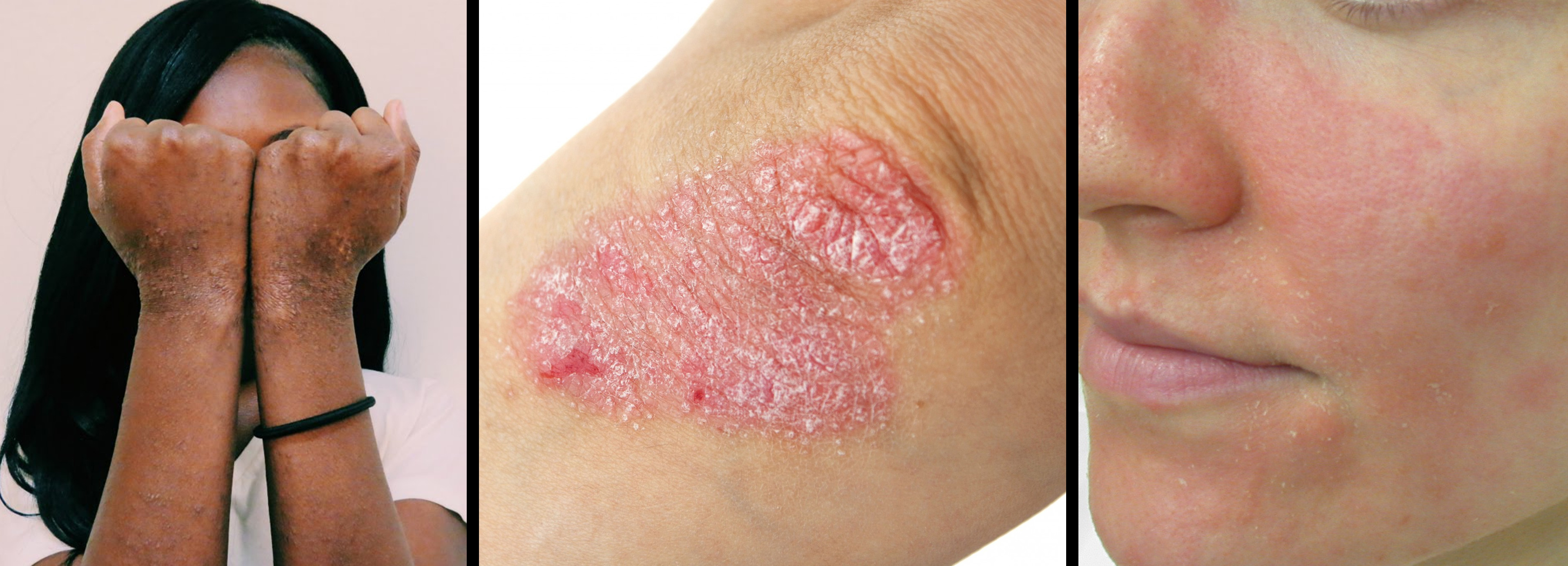We will take a closer look at what causes eczema, who is affected and what your treatment
options are if you or your child are among the millions of people that suffer from mild to severe eczema.
What Exactly is Eczema?
Eczema (also known as dermatitis) is a skin condition that affects both men and women. Age also doesn’t seem to make a difference, since this skin condition appears in anyone from babies to the elderly. About one fifth of all children suffer from eczema and about one in every twelve adults has eczema. Eczema can range from mild to severe. Mild eczema symptoms include red, dry and itchy skin. In moderate to severe cases it can be very inflamed, very itchy, cracked, crusty, scaly, raw, and in more severe cases you may also see bleeding or clear fluid leaking – this is also known as wet eczema.
What Causes Eczema?
Eczema is not caused by any one thing. The causes are many and it is not the same for
all individuals. There are allergenic forms of eczema and non-allergenic forms. The most
widespread form of eczema is atopic eczema and this type is believed to have a hereditary
condition and to be connected with sensitivity to allergens that don’t bother people in the
general population. Plenty of people with atopic dermatitis also suffer from other allergy
related problems such as hay fever and asthma. Other types of eczema are believed to be
connected to irritants such as harsh detergents, chemicals, dust, sand, cigarette smoke,
scratchy natural material such as wool, nickel, etc.
What Are The Different Types Of Eczema?

There are a number of types of eczema. There is atopic eczema (the most common type),
allergic contact dermatitis, irritant contact dermatitis, infantile seborrhoeic eczema (cradle
cap), adult seborrhoeic eczema (such as dandruff that can spread to other areas of the body, most commonly seen in adults between the age of twenty and forty), varicose eczema (found in elderly people) and discoid eczema (tends to appear in middle age). It is necessary to visit your doctor in order for him or her to come up with a proper diagnosis of your condition. This might you to have to undergo a series of tests.
Is There An Eczema Cure?
Presently there is no cure for eczema. Instead the focus is on finding ways to manage or
control how often the eczema flares up.
Treatment Options For Eczema?
There are a variety of ways that eczema can be kept under control. Your doctor will help you determine based on the severity of your condition which type of treatment is best for you. Currently the treatment options for eczema include emollients like P.V. Products’ KitiKiti to help lock in moisture to the skin, topical steroid creams, oral steroids (these are not the kind that athletes take), topical immunomodulators, antihistamines, ultraviolet light treatment and a variety of alternative health therapies such as allergy testing, aromatherapy, hypnotherapy, acupuncture, traditional Chinese medicine (TCM), chiropractic and homeopathy.
If you are or think you may be suffering from eczema, talk to your doctor and contact us to learn how KitiKiti products may be able to help you.

